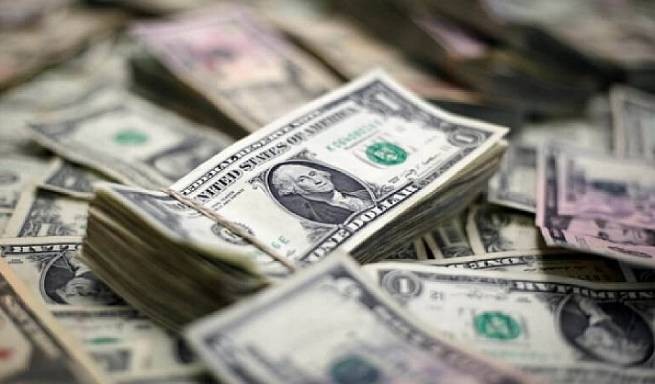The war in Ukraine is literally destroying world markets. On Monday, March 7, gas and oil prices skyrocketed, and stock markets crashed.
European stock markets opened yesterday with a sharp drop in indices. The world economy is flying into the abyss because of the war in Ukraine. But most worrying is the sharp rise in food prices.
Food prices – from corn and wheat to meat and sugar – did not begin their rise today. Back in 2020, products began to rise in price due to the pandemic that broke out in the world, prices did not want to decrease even at a time when the coronavirus began to gradually recede. And now politics has unceremoniously intervened, forcing prices to rush up.
Grain began to rise in price even before the war in Ukraine, reacting to claims of an invasion. Now there is a real concern about the export of Ukrainian grain – explosions are thundering in the country, part of the land has already been taken out of circulation, and sowing in a warring country is simply impossible. The markets reacted instantly.
Last week, the price of wheat reached a maximum over the past fourteen years – $ 375 per ton. Weekly growth broke all records – plus 40%. Deutsche Bank said:
“Russia and Ukraine are major producers of wheat, accounting for about 30% of world exports, so this is one of the areas where there is a direct economic impact.”
And yesterday, the price tags for wheat jumped another 6%. Since the beginning of the war, shipments of Ukrainian wheat have been blocked, the main shipments went by sea. Later, Ukrzaliznytsia was able to organize the transportation of individual consignments through the railway to Europe, but full-fledged exports, which is quite understandable, are not in question. Andrey Shevchishin, head of the analytical department of Forex Club, says:
“Russia is physically able to export. But the sanctions trail and the complexity of the calculations also put the stability of supplies in question.”
It is quite understandable that many buyers are reorienting to other sources of supplies, for example, Egypt plans to purchase Kazakh wheat. Corn has already risen in price by 2.7%, soybeans – by 2.1%. The situation with sunflower oil (Ukraine is its No. 1 exporter in the world) is “awful”. In a number of European countries and in Turkey, there is already an unprecedented boom around sunflower oil. But supplies stopped because of the war. As a result, in Turkey, buyers literally fight for butter, which is rapidly disappearing from the shelves. Shevchyshyn notes:
“The fact is that not only the current exports are in question, but also the future harvest. If winter wheat is at least sown, then what will happen to the areas that were prepared for corn and sunflower? Whether it will be possible to carry out field work in due time is an open question. For example, top dressing needs to be done right now, but under shelling, this work is impossible.”
Uncertainty about sunflower oil caused prices for other oils, such as palm oil, to jump. The situation with fertilizers raises a big question. “Sanctioned” Belarus and Russia are the world’s largest suppliers of potash fertilizers, and the cost of nitrogen fertilizers is highly dependent on gas prices. As a result, a fertilizer crisis is looming due to rising prices and supply disruptions. Andrei Zablovsky, head of the secretariat of the Council of Entrepreneurs under the Cabinet of Ministers, notes:
“Global prices for raw materials and food will continue to depend heavily on the situation in Ukraine. In particular, further growth in grain prices is quite possible due to problems with logistics and the implementation of export contracts by Ukrainian counterparties.”
Andrey Shevchishin, head of the analytical department of the Forex Club, believes that the energy and raw material crises covering the world in the very near future may develop into a large-scale economic crisis, as analysts have been predicting for several years now. After all, it is clear, experts say, that with such prices for energy resources, raw materials and food, there are actually no opportunities for economic growth or, at worst, maintaining economic stability, the publication analyzes the situation. “The country”.






More Stories
4 scenarios for the development of the war in Ukraine
There was a scandal in Cyprus over the Prime Minister's plane, donated by K. Mitsotakis
Nuclear wrestling between the USA and Russia: are we heading towards the use of strategic weapons?